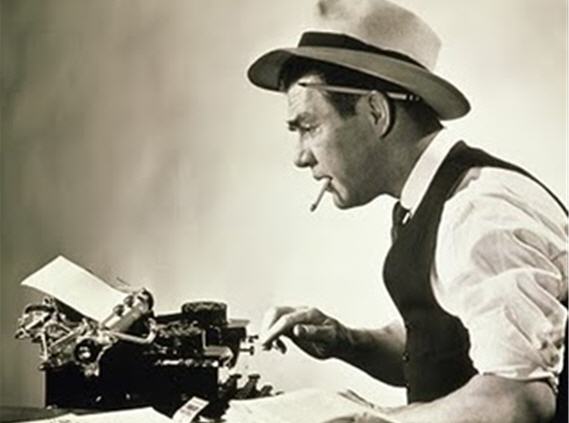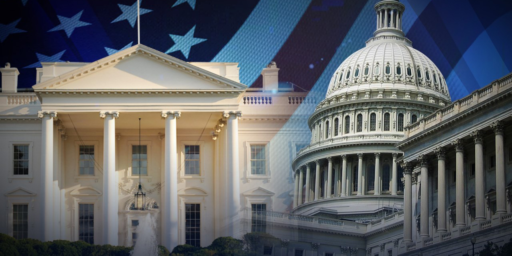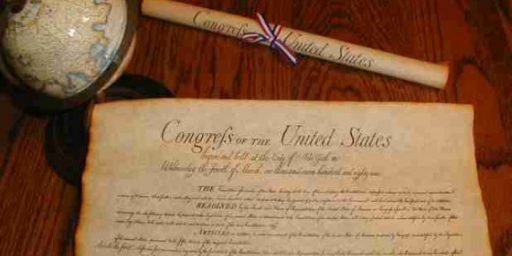Fox News Reporter Faces Potential Jail Time For Refusing To Disclose Source
A Fox News reporter may go to jail for refusing to reveal a source. Should journalists have an absolute testimonial privilege?
Fox News Reporter Jana Winter finds herself in the middle of legal trouble in Colorado related to her reporting about the Aurora, Colorado shooting, and specifically her reporting about what the University of Denver knew about James Holmes’s mental state in the months before the shooting:
Fox News sent Winter, a veteran reporter based in New York, to Colorado to cover the shooting and its aftermath. Winter soon broke an exclusive story revealing that, prior to the shooting, Holmes had sent a package to a University of Colorado psychiatrist that included a notebook ”full of details about how he was going to kill people,” according to one of Winter’s sources. Her July 25 article on FoxNews.com also reported that the notebook contained illustrations of a massacre, including drawings of gun-wielding stick figures shooting other stick figures.
The package, sent to Dr. Lynne Fenton, is now in the hands of Holmes’ defense attorneys, who have not released any further details on its contents.
(…)
In January, Holmes’ defense team successfully petitioned Sylvester to begin the process to compel Jana Winter to testify in the Aurora courtroom, produce her notes and identify her sources. Winter lives in New York where she works for Fox News, so a New York judge’s sign-off was required.
Justice Larry Stephen of Manhattan signed a subpoena, but Winter’s attorney, Dori Ann Hanswirth, has filed papers to appeal that decision.
“We hope that the appellate court will decide our request for a stay soon so that Jana is not required to return to Colorado until after her appeal is decided,” Hanswirth said. ”New York’s strong commitment to protecting confidential sources is at stake, and Jana shouldn’t have to travel out of state to testify before a New York appeals court has the chance to say whether the law requires her to do so.”
“The subpoena of Ms. Winter is absolutely troubling,” said University of Colorado at Boulder Journalism Professor Len Ackland. ”An important way that journalists inform the public – their obligation as self-appointed, self-anointed public servants – is to have sources tell them what is really happening on matters of public interest. Such subpoenas clearly can keep journalists from doing their work as well as intimidating potential sources.”
Winter’s Fox colleague, former Judge Andrew Napolitano, argues that the attempt to force her to violate her pledge of confidentiality to her source is completely unacceptable:
When one weighs the service Ms. Winter performed–the revelation of a truth–against the wishes of the State in wanting to know who spilled the beans, this is not a close call. Moreover, if courts can force reporters to reveal confidential sources, then who will talk to reporters in the future, and how will inconvenient truths about the government become known?
The whole purpose of the First Amendment is to stimulate and protect open, wide, robust debate about the policies and personnel of the government. Truth is essential to that stimulation. Putting reporters in jail for revealing the truth while protecting their sources is profoundly contrary to that purpose and highly offensive to the values the First Amendment was written to protect and we have all come to enjoy.
Journalists being compelled to testify, and being held in contempt and jailed if they refuse to do so, is not a new thing. Back in 2005, New York Times reporter Judith Miller refused to testify regarding the identity of the person or persons who had provided her with the identity of Valerie Plame and her employment as a CIA operative. Since this was in Federal District Court, and the Federal Courts have not recognized any kind of testimonial privilege, Miller was found guilty and spent more than two months in jail in Alexandria, Virginia. Eventually, though, Miller did end up naming her source, and that eventually led to the trial of Lewis “Scooter” Libby, former aide to Vice-President Dick Cheney. During that time, Miller became something of a rallying point for reporters from many news agencies.
The reality, of course, is that no Court has ever ruled that the First Amendment includes within in it a privilege entitling reporters or other members of the press to refuse to testify regarding the identity of sources or any other information that they may have come into possession to during the course of doing their jobs. Partly, this is because the law disfavors testimonial privileges to begin with. There are, in general, only three main privileges that would prevent someone from being compelled to testify in a court proceeding. The Priest/Penitent privilege, for example, prevents ministers from being compelled to testify about matters shared in a ministerial relationship, such as a confession of sins, under a promise of confidentiality. The Spousal privilege prevents a spouse from being compelled to testify against their spouse about matters communicated in private between the two, although as the link notes there are actually two distinct forms of the privilege and what they cover tends to vary from state to state. Finally, there is the Attorney-Client privilege, which bars an attorney from being compelled to testify against his client regarding information obtained during the course of an attorney-client relationship except under very limited circumstances. Of these three, only the Priest/Penitent privilege can accurately be said to be rooted in the Constitution in that several courts have held that compelling a minister to testify regarding matters they have discussed with a member of their faith would be a violation of the Free Exercise of Religion. The other two privileges, though, are based in statute and therefore are more likely to have exceptions under which someone can be compelled to testify.
That appears to be the situation in Ms. Winter’s case. Like nearly every state in the Union, Colorado does have a “Shield Law” that purports to protect journalists from being compelled to testify, but it has a fairly large loophole:
In Colorado, there are other circumstances in which the Shield Law may not protect a reporter from divulging to a court information or its sources. First, the information has to be directly relevant to a substantial issue in the case. Second, it must be shown that the information cannot be obtained by any other reasonable means. Finally, the interest of the party seeking the information must outweigh both the First Amendment rights of the reporter and the public’s right to receive news information. All three of these conditions must be met.
“Shield laws don’t just protect reporters. They ensure the public has access to critical information,” Hanswirth said.
This has always been the issue when it comes to nearly every testimonial privilege that the law recognizes. Even a privilege as seemingly absolute as the Attorney-Client privilege includes exceptions under which an attorney can be compelled to reveal information about a client, such as when he knows that a client is about to commit a crime or when the client has been involved in committed a fraud upon the court. Similarly, Colorado’s Shield Law, like other similar laws around the country, contains exceptions under which a reporter could conceivably be compelled to testify. What Napolitano seems to be arguing for, on the other hand, is a “Shield Law” based in the First Amendment that would essentially make the journalistic privilege as broad based as the Priest Penitent privilege. As I noted above, that is a position that no Court has ever agreed with and, given the general reluctance in the law for broad grants of testimonial privilege, I doubt that such a privilege would ever be accepted.
Jazz Shaw has this comment about the Colorado case:
This one should be a no-brainer for observers who are mindful of maintaining a free press. It’s true that there is nothing specific in the constitution which would shield a reporter from such a court order, but we’ve built a pretty healthy precedent over the years in terms of allowing reporters to guard their sources and keep the government honest. And this has nothing to do with the fact that it’s a Fox News reporter.
For the most part, I tend to agree. There should be some kind of privilege protecting journalists from being compelled to reveal the identity of their sources or other information that they learned during the course of an investigation but which they have agreed to keep confidential for one reason or another. On some level, such a privilege is in the public interest because it offers protection to people who may wish to come forward with information about something going on inside the government or a private organization, but fear being retaliated against if their identity is made public. Without some kind of protection, it’s likely that we’d have fewer people like that coming forward, and there would be fewer opportunities for the public to become aware of information of public importance.
At the same time, though, I’m not sure I agree that the journalistic privilege should be any more absolute than any of the other privileges that the law recognizes. If there are circumstances where an attorney can be compelled to testify against a client, or a wife against her husband, then why shouldn’t there be exceptions that compel a journalist to testify when the public interest requires it?
In the Winter case, there are public interests present in the fact that the information that Winter is aware of may well be relevant to either the prosecution or defense, or both, in a Capital Murder case. If that’s not a compelling public interest, I don’t know what is. Ms. Winter’s fate remains in the hands of a judge, and will depend on whether either side in the Holmes trial ends up attempting to call her to the stand, but contra Napolitano, I don’t see this as a First Amendment issue to the extent that I support the idea that reporters should never be subject to a legal duty to testify truthfully.







And these same reporters, I can tell you first hand, were embarrassed then angry when Miller was exposed as an unethical pusher of lies for the Bush administration.
Seems to me the right of the accused to a fair trial would trump in this case. This is, after all, a capital case.
Except they already knew Armitage had leaked to Novak and Woodward, which sort of took the Plame talking point out of circulation,
You had me at Fox News reporter faces jail time.
I was once held for 20 hrs in a suburban St Louis jail for a really stupid thing I had done. Not my first rodeo so no big deal. With me were 2 other guys, a donut thief, and a guy who got in a slapping match with his grandmother. Not exactly paragons of virtue. It was late Feb. and the uninsulated steam lines for the entire five stories of the city hall ran thru the jail down in the basement. 95 degrees is a conservative estimate. The entirety of the cells, floors, walls, ceilings, had fecal matter on them. The stench was overpowering. The cockroaches…. well you could saddle them and they would let you if they thought it meant they would be able to eat them..
Before the cop put me down there, he apologized, but he could not put me in the holding cell because they were holding a certified lunatic in there. Then he took my boots (“My boots! I want my boots!” was all I could think when I saw the floor) After 14 hrs I was seriously considering self mutilation as a means of escape.
Anyway, 24 hrs later, I found myself calling a Post Dispatch reporter, because even if those 2 idiots I was in there with were, well idiots, they deserved better than that. As I was talking to her I started shaking uncontrollably. I made her swear that in no way shape or form would she ever divulge my name. I was absolutely terrified of going back to that jail.
When I called her the next day, she said she had gone down there, and they would not let her in for about 6 hours, and when she did get in everything was spic and span. So at least conditions had improved to the “humane” side of the ledger.
Just my one small experience as a confidential informant in a very small case of government gone wrong.
@Scott:
I would agree, but the defense attorneys should have to show compelling reasons for why this is more than just a fishing expedition. We don’t let DA’s go fishing, we should not allow Defense attorneys to either.
I have it on good authority that Sean Hannity also refuses to name his sources.
In this case there also appears to be the issue of medical confidentiality.
The fact is that she seems to be the target of a witch hunt. She obviously did not break any rules that would harm any other person, and she was just doing her job. She should be applauded. Like this guy or gal did….http://thegenerationxconservative.blogspot.com/2013/04/jana-winter-fox-news-journalist-and.html
As always with an alternative view.
In the Pandects of Justinian is a wonderful quote:
The alleged breach of the Court’s gag order happened only a day or two after the massacre itself (if I am reading these stories correctly). If the Court thought it was a breach of its day-old, or even hours-old, gag order–even if the Court thought it was contempt of its gag order– it should have expressed its displeasure then.
Instead, the sense of injury is being made now, eight months after the information was leaked to the press, and the sense of injury is being made not by the Court, acting sua sponte, but by the attorneys representing the defendent. This whole issue with journalistic privilege becoming headline news was occasioned by defense attorneys accusing others, long after the fact, of violating a judge’s court order. It is just a sideshow initiated by the advocates of a mass murderer (excuse me, alleged mass murderer) to divert the public, press, and potential jurors from bringing to mind the horrors of the original massacre as the case goes into trial.
Another ancient Roman maxim runs:
If he who merely spares the bad harms the good, you can imagine how many innocent people are going to be damaged by their defense attorneys.
The alleged mass murderer has harmed enough people. Neither he nor his attorneys should harm more, and by all means the Courts should not be enablers to their hurting people further.
I apologize for being late to the game, but Doug, I hope you’ll respond. I’m curious why you didn’t mention doctor/patient privilege. Doesn’t that occupy a similar position to attorney/client privilege?